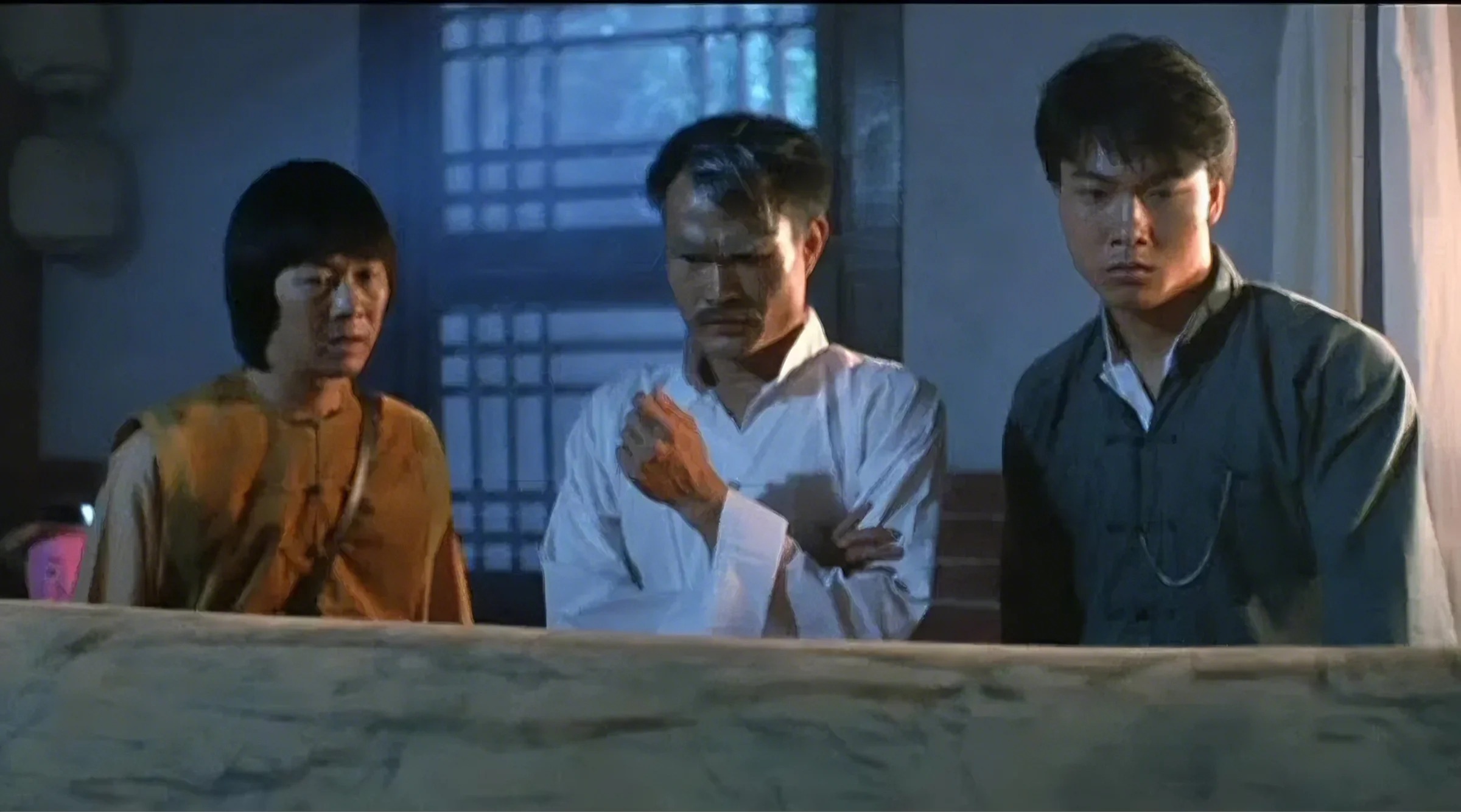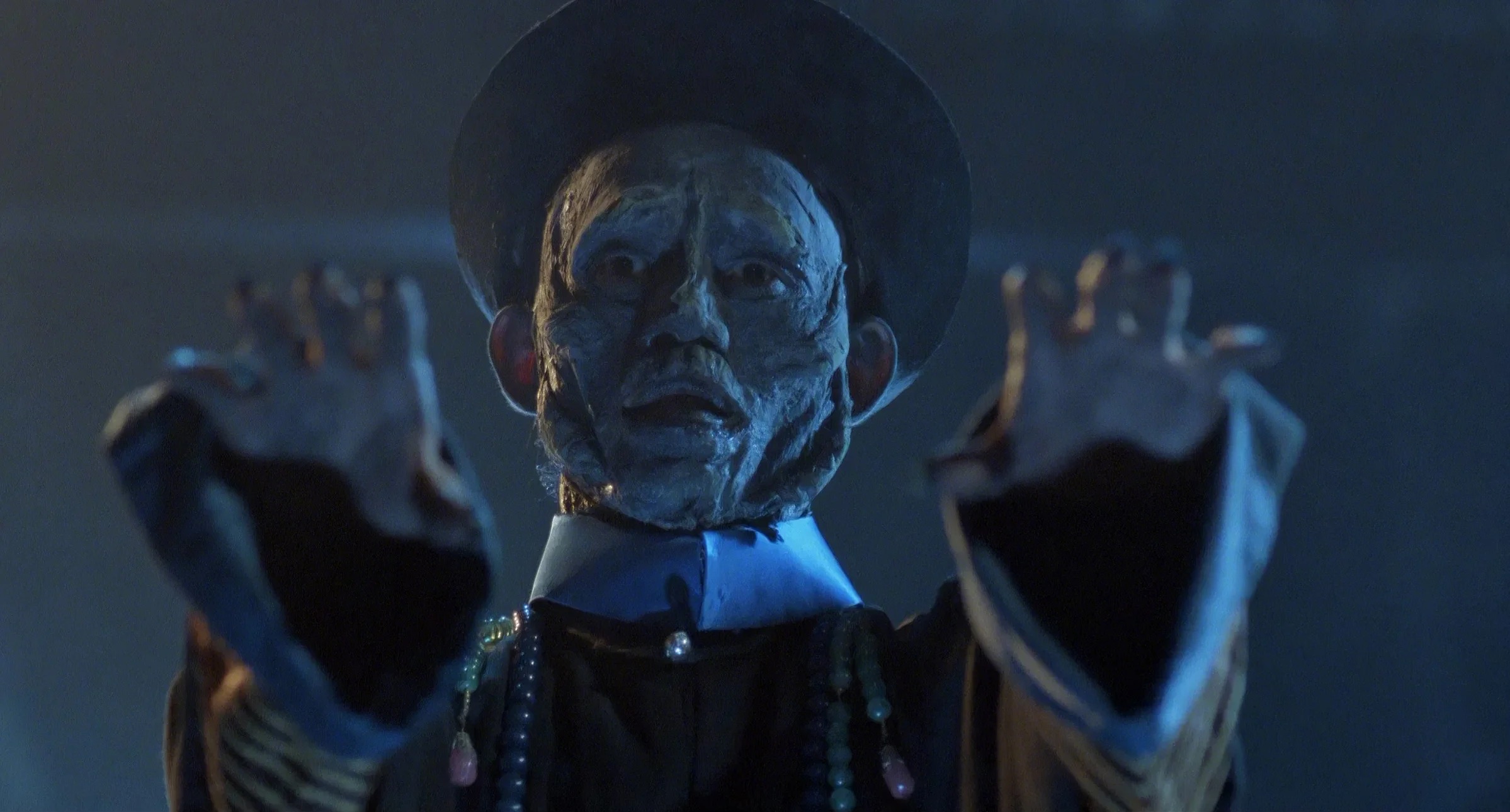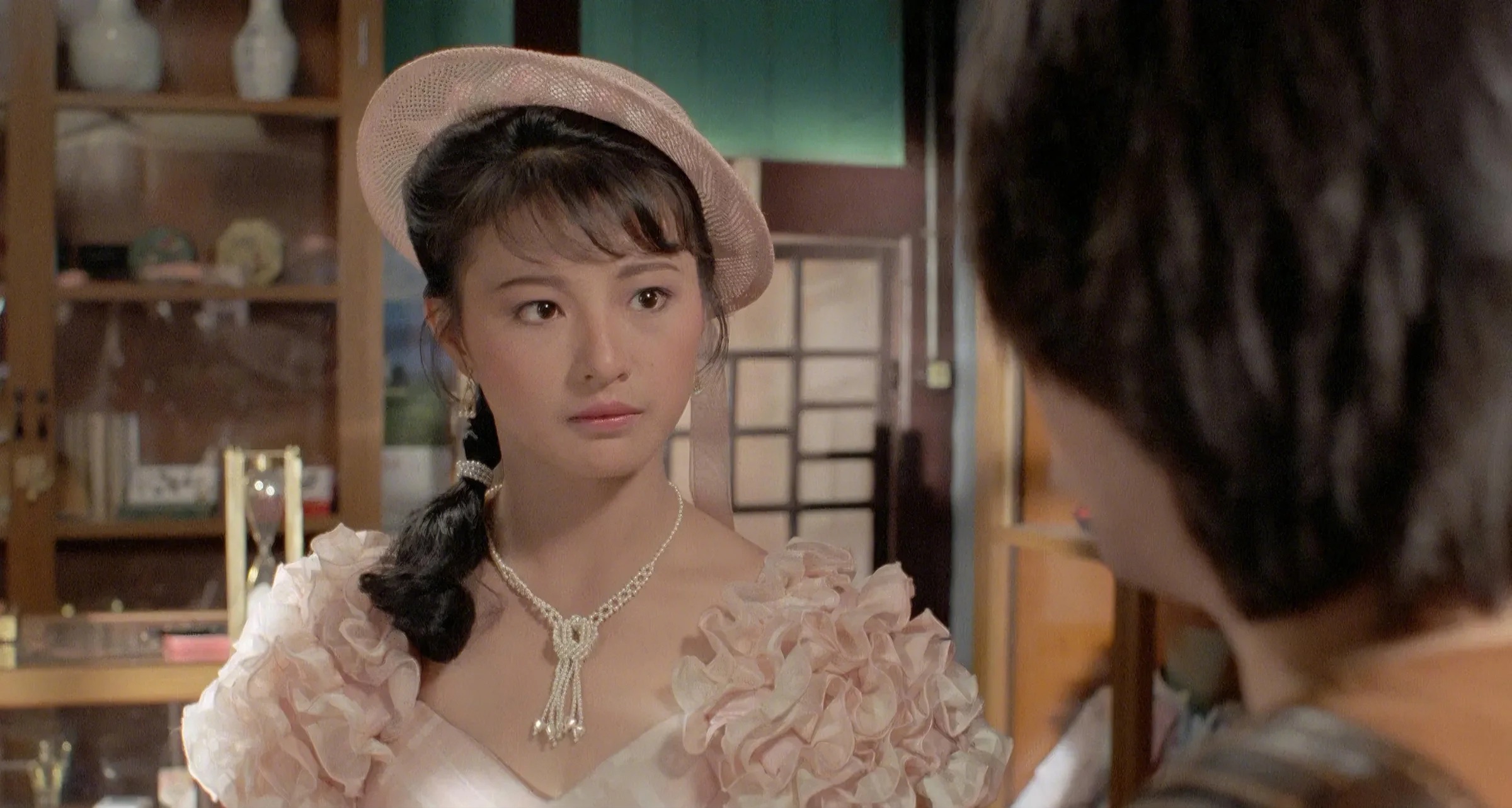Mr. Vampire (1985) is a Hong Kong supernatural horror-comedy film directed by Ricky Lau, and it has become a beloved classic of the genre, blending elements of traditional Chinese folklore with slapstick comedy and martial arts. The film’s influence is significant in the “jiangshi” subgenre of Hong Kong cinema, which features stories about the “hopping vampire” — a type of undead creature from Chinese mythology.
The film follows a Taoist priest named Master Gau (played by Lam Ching-ying), who is skilled in the art of exorcism and dealing with supernatural beings. Master Gau is tasked with protecting his family and others from a malevolent jiangshi (hopping vampire), which is inadvertently unleashed after a series of misadventures. The jiangshi, a corpse that has been reanimated and now hops rather than walks, is one of the main threats in the film. The creature is depicted as both frightening and absurd, and the film plays with its eerie nature by juxtaposing it with a comedic tone.

The film also features a group of characters who are not entirely adept at handling supernatural threats. They include a bumbling young man (played by Ricky Hui) and his friends, who are both scared and comically ineffective in their attempts to deal with the jiangshi. These characters provide the comedic elements of the film, with many physical comedy moments and misunderstandings that add levity to the more suspenseful and frightening moments.

While Mr. Vampire is a horror film at its core, the comedic aspects set it apart from other films in the genre. The slapstick humor, funny dialogue, and quirky characters create a balance with the supernatural horror, making it accessible to a broader audience. This unique mix of horror and comedy, combined with elements of martial arts, became a signature of the film, which contributed to its lasting popularity in Hong Kong cinema.

Mr. Vampire was a massive hit in Hong Kong and helped to popularize the jiangshi genre, leading to several sequels and spin-offs. The success of the film also led to the rise of Lam Ching-ying as a well-known figure in the Hong Kong film industry, particularly for his role as the Taoist priest, which became an iconic part of his career.
